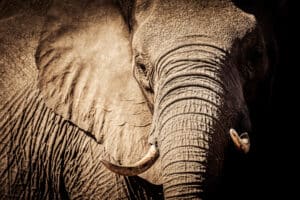Is Happy the Elephant a Person?
People love animals. Treating animals well is indicative of a good and kind society. We are slowly moving toward a kinder world, but the operative word is slowly.
Unfortunately, most societies today don’t provide animals with as much care and kindness as they may deserve. This doesn’t sit right with a lot of people, including those who are part of the Nonhuman Rights Project (NhRP). This group believes that animals should have more rights and that they should be treated as people according to the law. Currently, they are talking about an elephant named Happy.
Although this might sound strange to some, it is not unheard of today. There is a growing sentiment around the world for these types of changes to be implemented.
In 2013, India banned the capture and confinement of dolphins and orcas because they have been proven to be extremely intelligent and sensitive. Other countries around the world have followed suit including Costa Rica and Chile. Finland even created a Declaration of Rights for cetaceans.
In Argentina, an Orangutan named Sandra was designated a nonhuman person and received her freedom. This simply means that she was able to go and live in a sanctuary in Florida where she could be better cared for.
It’s not even the first time an elephant has been part of the discussion about nonhuman rights. In Pakistan, a judge ordered that an elephant called Kaavan be released, along with other zoo animals, to sanctuaries.
What About Happy?
The New York Court of Appeals made the determination of what is going to happen with an elephant named Happy, who has lived at the Bronx Zoo in NY for about 40 years. The NhRP wants to have Happy transferred from the zoo to a sanctuary, but the zoo says that’s not going to happen. Currently, the laws in the United States say that animals are considered property. In this case, the zoo would be considered the owners of Happy.
The NhRP wants Happy to have nonhuman rights, which would make it easier to get the transfer. In 2005, researchers painted a mark on her forehead and then had her look into a mirror. She noticed the mark and started to touch it with her trunk, which indicated that she could recognize herself.
While this might seem insignificant, it was the first time any animal other than humans, dolphins, and apes did this. The magpie was recently shown to have this same ability. It’s believed that this capability is associated with empathy, which is typically a trait reserved for humans. Perhaps more animals do deserve these rights.
The NhRP has said that they would be willing to drop the case if—and only if—the Bronx Zoo decides to send Happy to one of two sanctuaries that would like to take her. One of those is located in Tennessee and the other is in California.
Unfortunately, the New York Court of Appeals concluded that Happy the Elephant is not a person as personhood is a legal designation that indicates an entity has the capacity for rights or responsibilities.
Does It Sound Strange?
This might all sound odd to a lot of people. However, think about all of the other “objects” that have been granted rights before. Natural resources have rights in some locations. Hindu idols can be considered people with wills of their own according to the British Privy Council in 1925.
Corporations are considered people. Not only are they legal entities, but they are also considered a person under the law. A corporation can enter into contracts, sue and be sued, and own property.
Is it so hard to believe that an animal could be afforded certain rights, too?

